Kawasaki Z900 (2019) real-world review | Part one
Visordown heads to Kawasaki Motorcycle's UK HQ to pick up a 2019 Z900 supernaked motorbike; Check out our first impressions here.

As a kind Kawasaki marketing staff member wheeled out our Z900 press bike, my eyes lit up as one gazed upon it’s funky and aggressive sugomi design [which mimics an animal ready to pounce].
I thought to myself, 'this isn’t the kind of motorcycle a person who has no real interest in bikes purchases'. No, sir. This is a stripped-back naked supersport ready for whatever switchback you can throw at it. Its looks might be a bit cutting edge to some, but to a younger demographic (or young at heart) it will likely suit perfectly.
At the credit to Kawasaki, the ‘refined raw’ design ethos of the Z series holds true with the Z900. There’s no traction control, no wheelie control, no six-axis IMU, and no engine modes. Just you - some ABS - and the motorcycle. Personally, this reminds me of the good ol’ days when people used to use their instincts to ride, instead of relying on electronics. And I’m by no means a purist, but it’s refreshing that some manufacturers go against the grain of overcomplicating motorcycles.
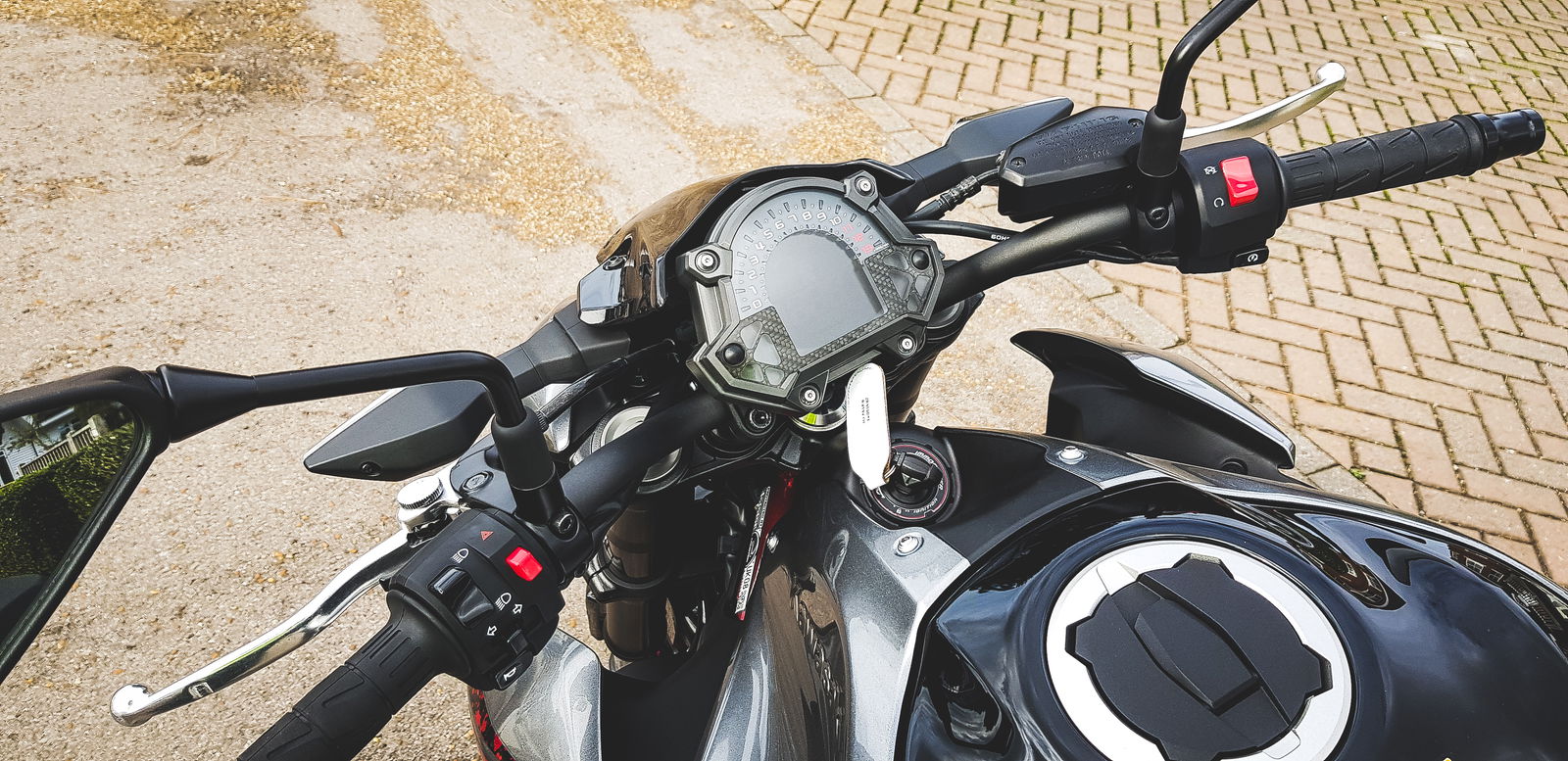
What is the Z900 Equipt with?
For £8,549 you’ll be pleased to know the Z has a fuel gauge within its multifunctional LCD instrument panel, and in general, the dash laid out well. Apart from the compulsory ABS, and special Z tail light, that’s pretty much it in terms of electronics.
Other features include:
Die-cast cylinders
Assist and slipper clutch
Low seat
Fully adjustable suspension
Kawasaki says that the Z900 is ‘rider-focused’. If that is the case, then the real star of the show has to be that inline-four motor.
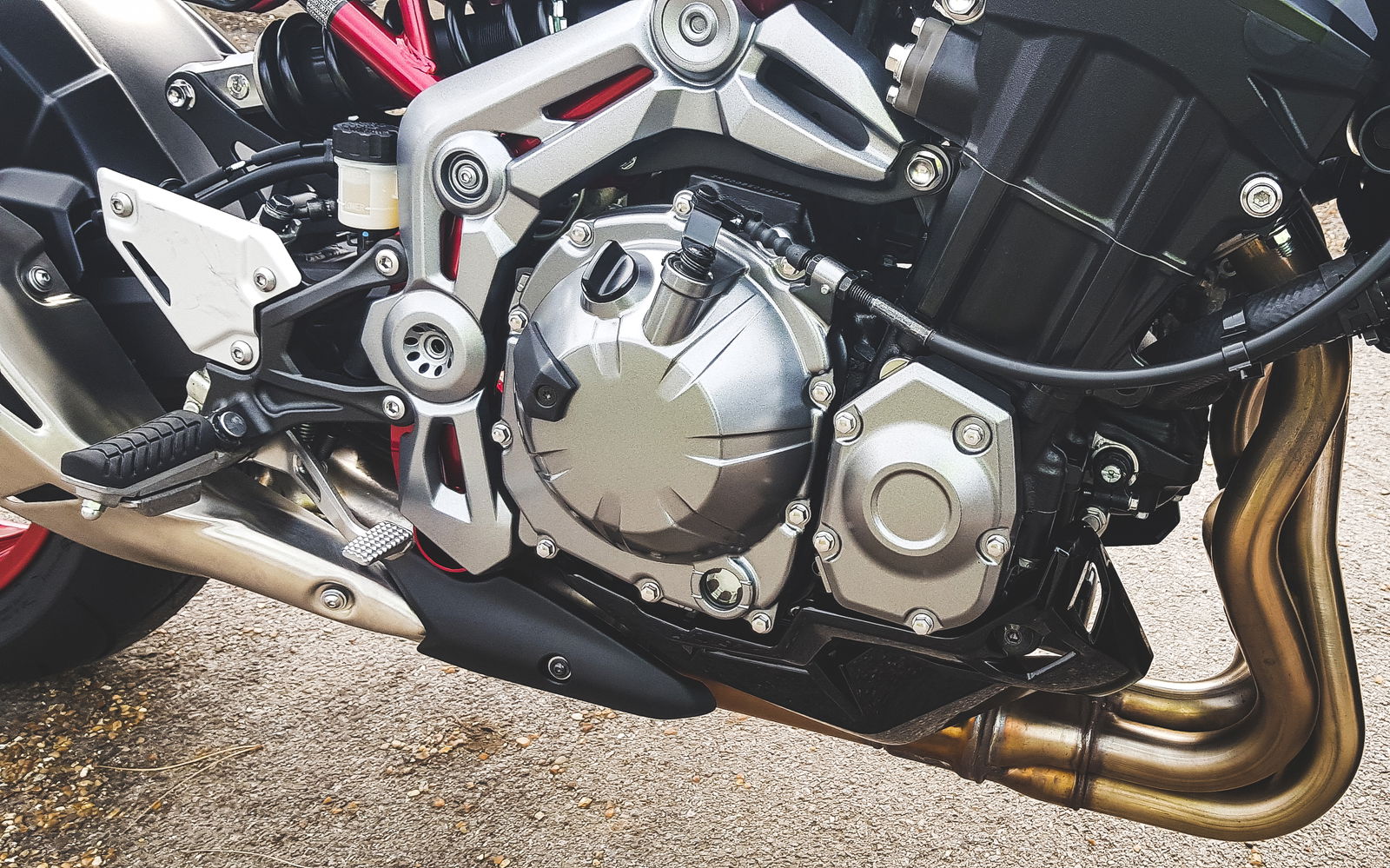
Engine
The Z900 has a 948cc inline-four liquid-cooled motor, embedded within its H2 inspired steel trellis frame. First impressions of it are very good, as the motor is silky smooth and predictable - perfect for wet autumnal days. It’s got plenty of grunt too, with Kawasaki claiming 125 hp, which is more than enough power for the road.
Although it doesn't have Superduke power (150+ hp), it’s still pretty rapid if you give it a handful of throttle. Other than that, it’s tame, usable and easy going.
As I pinged down the M25 back to London, at the national speed limit(ish), it became apparent to me how well the rider sits within the bike.
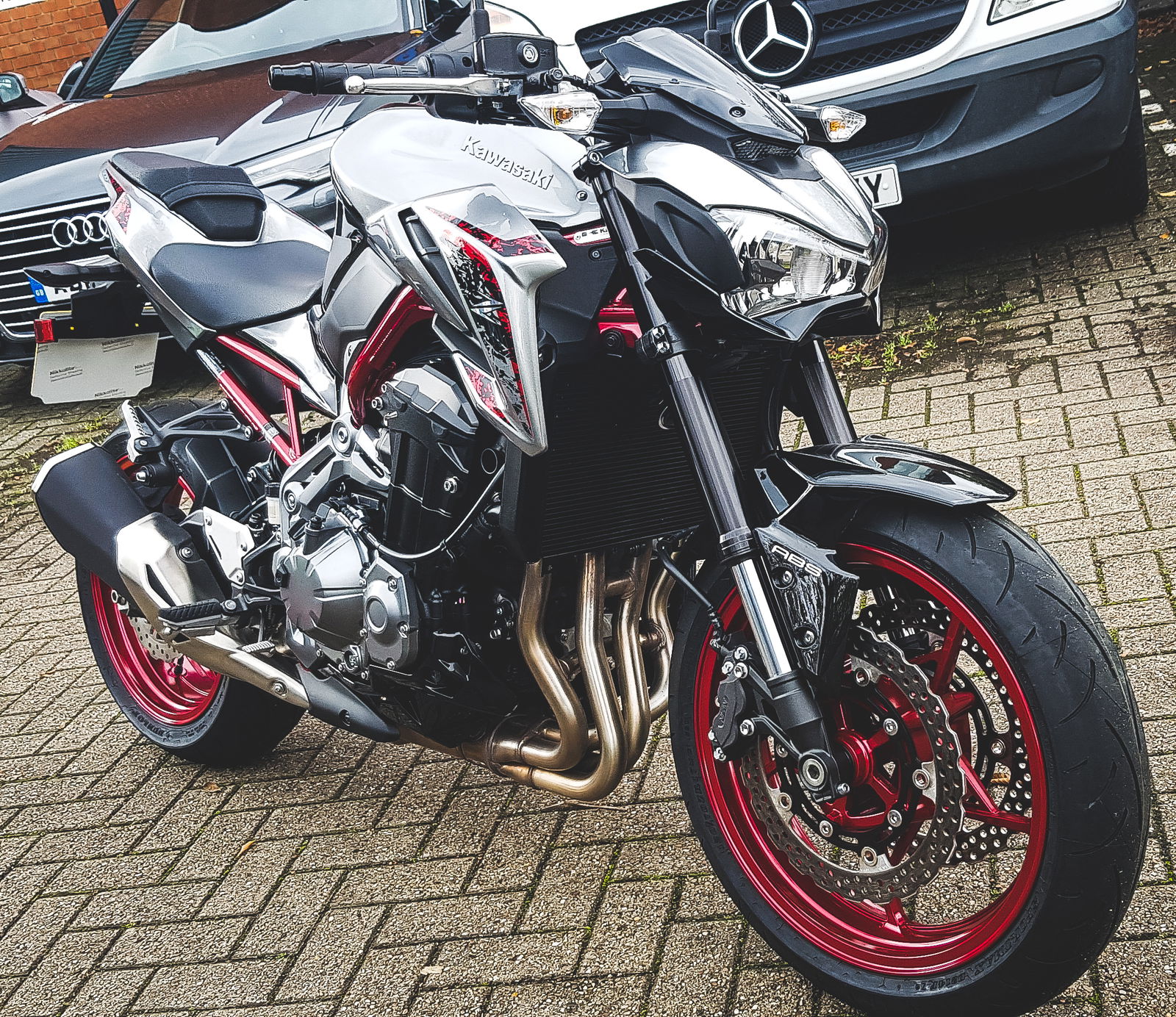
Ergonomics and handling
At motorway speeds, the aggressive design of the Z900 helps to make you feel part the bike, instead of just holding on and getting buffeted to heck. The handlebars, although wide, are swept back towards the rider, which helps with comfort but also handling - specifically, sporty handling. And the cutouts in the tank leave a nice slot to place your thighs when cruising. This position strikes a good balance between comfort and sportiness.
Handling wise, the Z doesn't tie itself in knots and around a corner performs really well. It's responsive and flickable, without feeling knife-edge - which can be a problem for some supernaked's.
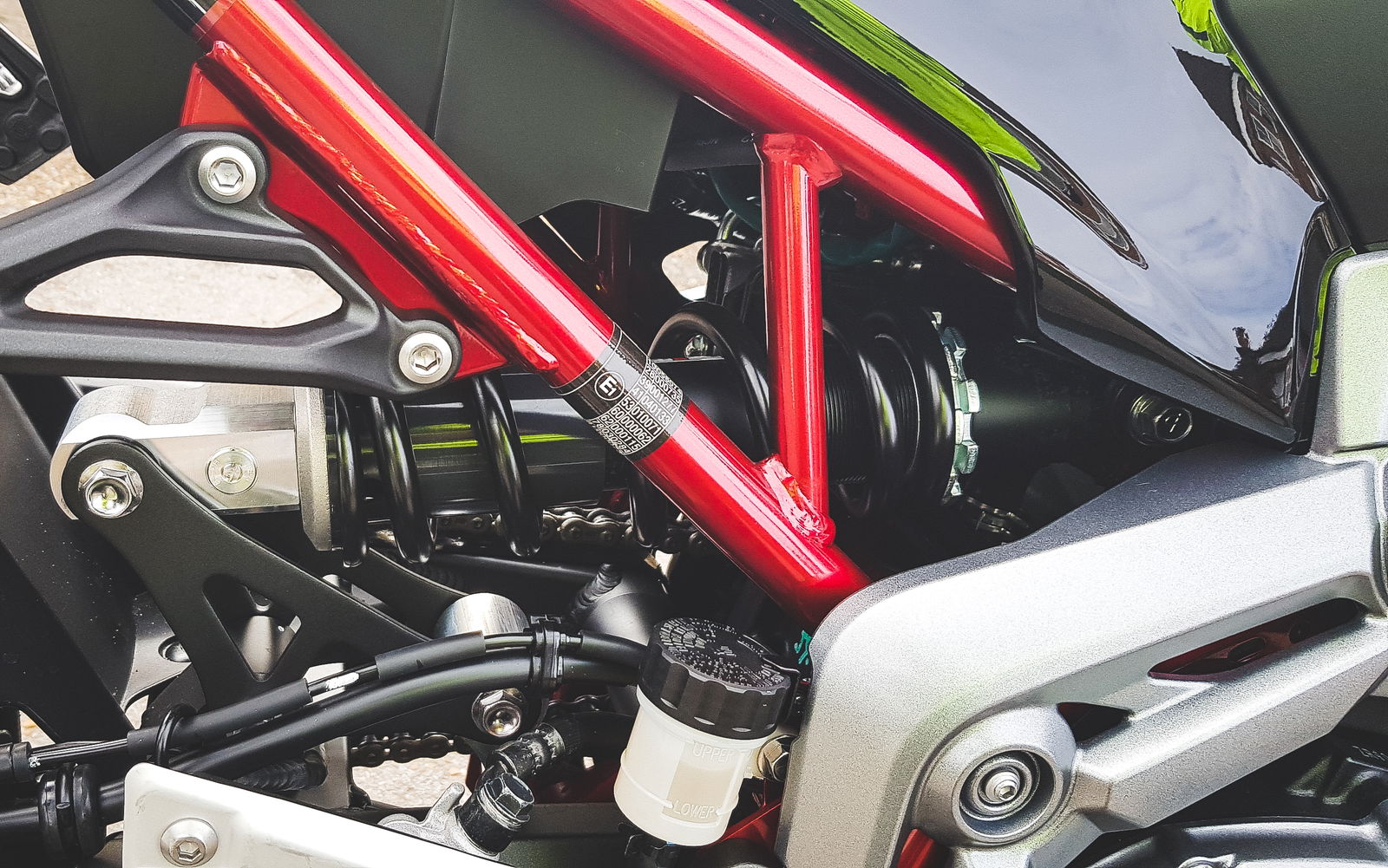
What’s the point of the Z900?
The Z9 has direct competition from the Yamaha MT-09 SP (£9,399), and the Triumph Street Triple RS (£10,300), which are both very capable machines. Yes, they’re more pricey, but both have more in terms of electronic aides. So, I think the Z900 is as it says on the tin. ‘Refined Raw’. Simple, easy to ride, great value and plenty of fun - without all the complicated TFT menus and engine maps to faff around with. Just get on, and ride.
What’s up next for the Z900?
Stay tuned for the full review, and some high-speed testing at Bruntingthorpe - maybe with a few wheelies for good measure.
Kawasaki Z900 Full specs
Engine |
Engine type Liquid-cooled, 4-stroke In-Line Four |
Displacement 948 cm³ |
Bore x stroke 73.4 x 56 mm |
Compression ratio 11.8:1 |
Valve system DOHC, 16 valves |
Fuel system Fuel injection: Ø 36 mm x 4 with sub-throttle |
Starting System Electric |
Lubrication Forced lubrication, wet sump |
Performance & Transmission |
Maximum power 92.2 kW {125 PS} / 9,500 rpm |
Fuel consumption 5.5 l/100 km |
Power down kit 85 kW Available |
CO2 emission 138 g/km |
Maximum torque 98.6 N•m {10.1 kgf•m} / 7,700 rpm |
Transmission 6-speed |
Final drive Sealed chain |
Clutch Wet multi-disc, manual |
Brakes & Suspension |
Brakes, front Dual semi-floating 300 mm petal discs. Caliper: Dual opposed 4-piston |
Brakes, rear Single 250 mm petal disc. Caliper: Single-piston |
Suspension, front 41 mm inverted fork with stepless rebound damping and spring preload adjustability |
Suspension, rear Horizontal Back-link with rebound damping and spring preload adjustability |
Frame & Dimensions |
Frame type Trellis, high-tensile steel |
Trail 103 mm |
Wheel travel front 120 mm |
Wheel travel rear 140 mm |
Tyre, front 120/70ZR17M/C (58W) |
Tyre, rear 180/55ZR17M/C (73W) |
L x W x H 2,065 x 825 x 1,065 mm |
Wheelbase 1,450 mm |
Ground clearance 130 mm |
Fuel capacity 17 litres |
Seat height 795 mm |
Curb mass 210 kg |
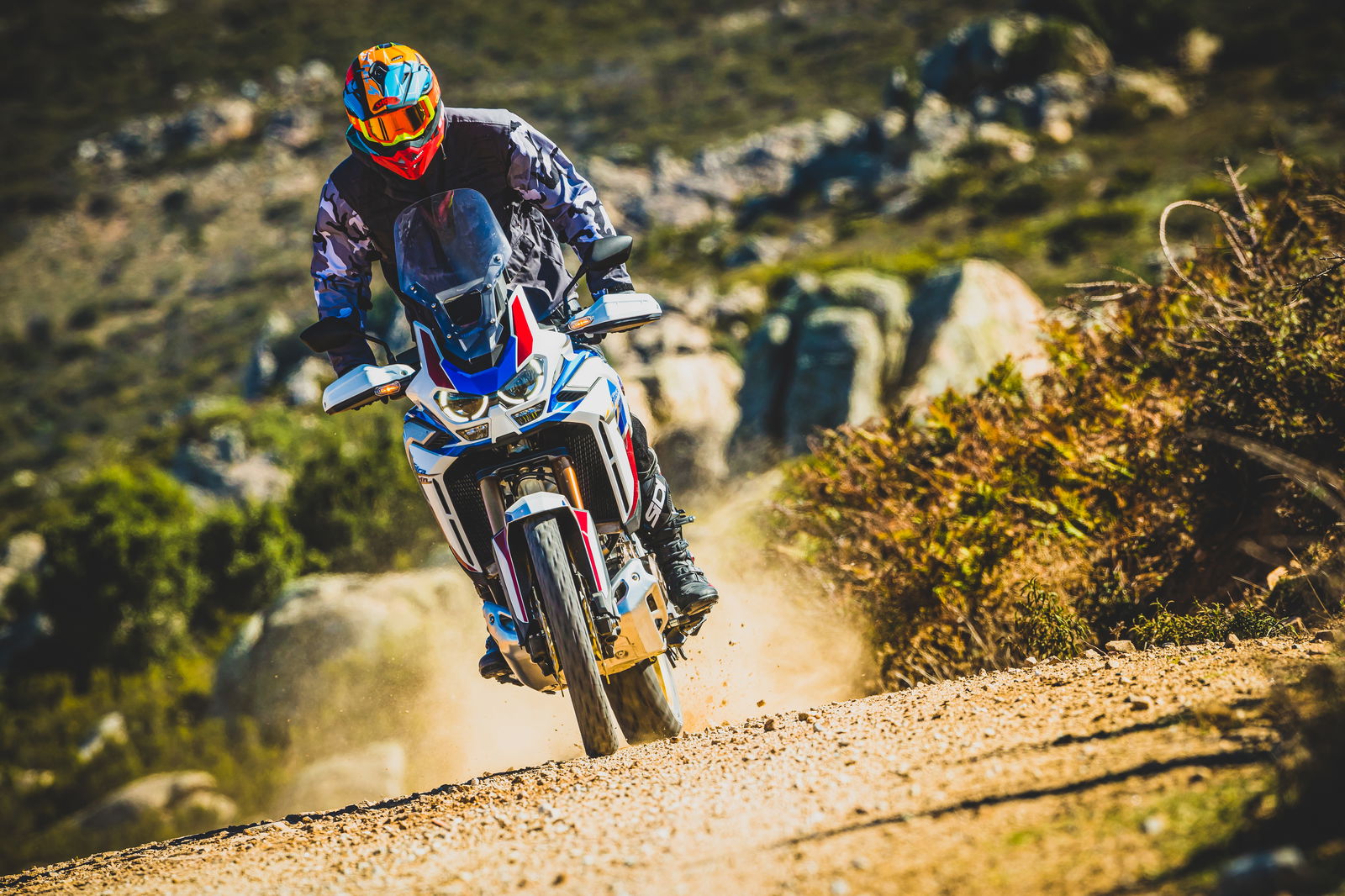
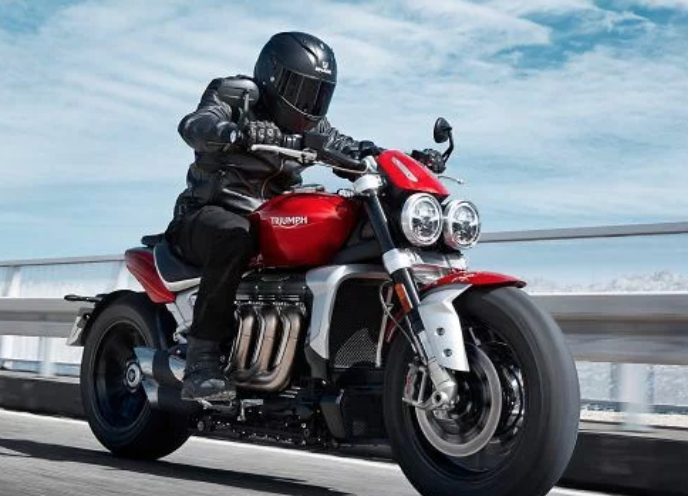





.jpg?aspect_ratio=1:1)